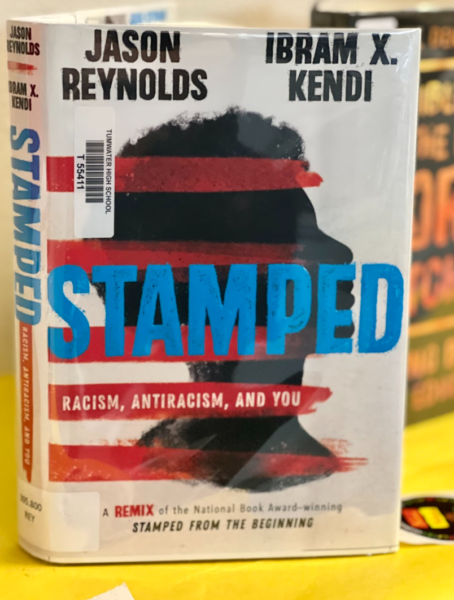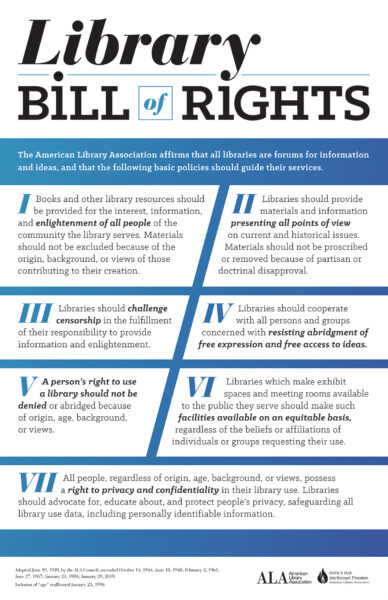Censorship Gone Wild
There have been a plethora of school library censorship and banned book stories lately. Unfortunately ,there are too many to list, but here are a few highlights that may have graced your news feeds.
A school district in Tennessee banned the graphic novel Maus by Art Speiglman over concerns of profanity and female nudity.
Another in removed Toni Morrison’s first novel, The Bluest Eye from library shelves for obscenity.
Texas, perhaps unsurprisingly, has a whole host of books their officials want to ban, an overwhelming amount of which feature LGBTQ+ characters and themes.
Librarians have been accused of poisoning young minds, buying pornography, and indoctrinating students.

In the midst of all of this, it would be easy for Washington educators and librarians to rest on our laurels, grateful not to be working in one of these states with high profile cases. After all, Washington is liberal and progressive, right?
But, when a colleague sent me this article on Book Riot, “LGBTQ+ Books Quietly Pulled from Washington State Middle School” I was reminded that issues of intellectual freedom and censorship in school libraries are everywhere. Stories like this one that don’t make national headlines are even more unsettling for their insidiousness.
In Our Backyard
In Kent, The Cedar Heights Middle School librarian, Gavin Downing, was deemed to have “sexually explicit” books on his shelves. The principal pulled books from the shelves, insisted that she monitor all future purchases, and created a council at school to advise Downing on “age appropriate material.”
It all started with Jack of Hearts by L.C Rosen about an “unapologetically queer teen” who “celebrates the freedom to be oneself, especially in the face of adversity.” If I Was Your Girl by Meredith Russo, an award winning novel about a trans girl, and All Boys Aren’t Blue, a memoir by LGBTQIA+ activist George M. Johnson, were also discussed at board meetings and removed.
Kent has a board policy to “revolutionize school libraries” across the district but clearly, censoring queer voices is out of alignment with the third phase of their plan which seeks to “reinforce equity and excellence.”
I can’t help but draw parallels to Texas where 59.95% of the 850 books on the governor’s banned list feature LGBTQ+ characters.
In Defense of Libraries
I am an English teacher, so it’s perhaps unsurprising that I take the freedom to read very seriously. I have also been unspoken about the fact that I think we need to update our curriculums to reflect a more accurate, diverse, and empathetic world view.
Additionally, this year, I’ve been a librarian half the day, a move that has encouraged me to pursue my library media endorsement, with the hopes of becoming a full time school librarian.
In preparation for one of my classes, I researched Library Bill of Rights and the American Library Association makes it clear that the principles of the bill apply to school libraries.

The ALA has a series of interpretations of this bill and there are a few principles that stood out to me in regards to both local and national censorship.
Intellectual Freedom: School librarians are leaders in promoting “the principles of intellectual freedom,” and must empower students with “critical thinking skills to empower them to pursue free inquiry responsibly and independently.”
In the Cedar Heights Middle School case, the removal of books from library shelves limits free and independent inquiry. Remember, we aren’t talking curriculum here, but simply books that students have the freedom to read on their own time.
Diverse Points of View: Collection material should “represent diverse points of view on both current and historical issues” and “support the intellectual growth, personal development, individual interests, and recreational needs of students.”
Representation matters. Books by and about the LGBTQ+ community can be powerful mirrors into students’ own experience or windows to foster empathy. I’d argue the titles that were removed from Cedar Heights could have played an integral role in students’ “intellectual growth” and “personal development.”
Political Views: The resources in the library should not be constrained by “personal, political, social, or religious views” and school librarians should resist efforts of outside groups to “define what is appropriate for all students or teachers to read, view, hear, or access.”
It’s no coincidence that the books banned in Kent were all written by and about members of the LGBTQ+ community. As long as those individuals continue to face discrimination, their existence and their stories will remain politically charged.
Rights of Minors: “Children and young adults unquestionably possess First Amendment rights, including the right to receive information through the library” and equitable library access should not be abridged by “chronological age, apparent maturity, educational level, literacy skills…”
Librarians are tasked with using their expertise in areas of literacy and adolescent development to fill their shelves. They are uniquely positioned to help their patrons explore those materials and think critically. Students are exposed to more than ever before online, and libraries are a safe place for them to explore a variety of resources with the guidance of a caring adult.
Parental Responsibility “Parents and guardians have the right and the responsibility to determine their children’s—and only their children’s—access to library resources. Parents and guardians who do not want their children to have access to specific library services, materials, or facilities should advise their own children.”
While I can see why some content might be deemed too mature for young readers, all of the books facing removal at Cedar Heights are highly vetted, award winning, and deemed important young adult texts. As an educator who has, at times during this pandemic, felt more like a babysitter than a teacher, I very much appreciate the focus on families’ individual choices.
What’s Next?
I wish I had answers during these “polarizing” and “unprecedented” times. Maybe, some day, we can live in a more harmonious political climate and experience some mundane, precedented news stories, though I’m not holding out hope.
However, as an educator, English teacher, and aspiring school librarian, it’s clear to me that the challenges we’re facing around intellectual freedom warrant our full attention.
So, pay attention to your school library and the books filling it’s shelves. Does your librarian curate a collection that is representative of your students’ needs?
Tune into your local school board meetings and contact the members. (The Book Riot article has contact information for Kent board members if you want to help the situation in Cedar Heights ).
Have conversations with your principal and colleagues. Where do they stand on issues of censorship and equity?
Our students deserve the freedom to read and we should never stop fighting for that right.
Emma-Kate, did you see this NYT article?
“In Tennessee, the ‘Maus’ Controversy Is the Least of Our Worries.”
The author makes the point that the main point isn’t banning books at all. The ultimate goal is privatizing education. Riling people up about specific books (or CRT) are just steps toward that goal.
My current read-aloud with my 4th and 5th graders is “Ban This Book” by Alan Gratz. https://www.alangratz.com/writing/ban-this-book/
The story takes book banning to its reductio ad absurdum conclusion.
Can you give a source for your information on the Kent school District? I would like to track this down. Thanks.
Hi Barbara. Absolutely! I had everything in my article hyperlinked, including the original Book Riot article about the situation in Kent. Here is is again as well:
https://bookriot.com/lgbtq-books-quietly-pulled-from-washington-state-middle-school/
Thank you for reading!
It has made the major papers in the Puget Sound area as well as national and international news sites. I am really sorry to see this happening in Kent. I’ve lived in the district for 43 years and have watched the demographics shift over that time and know some people just can’t accept the changes.